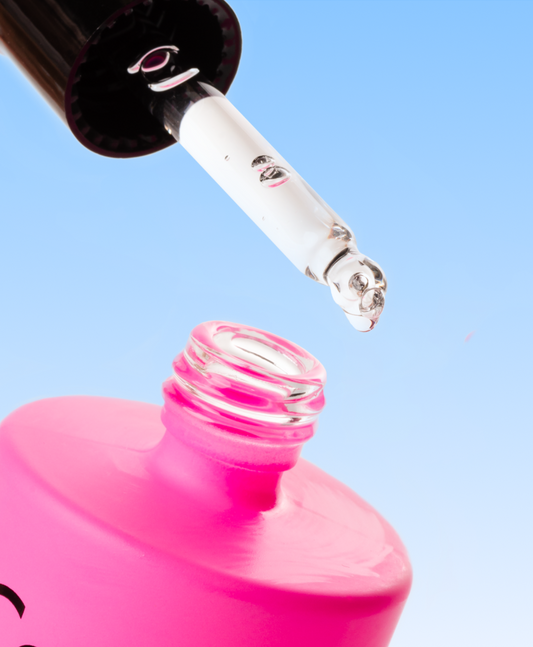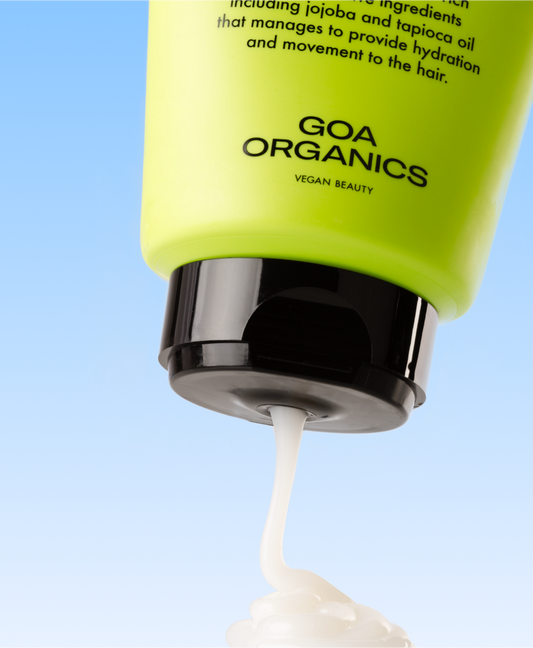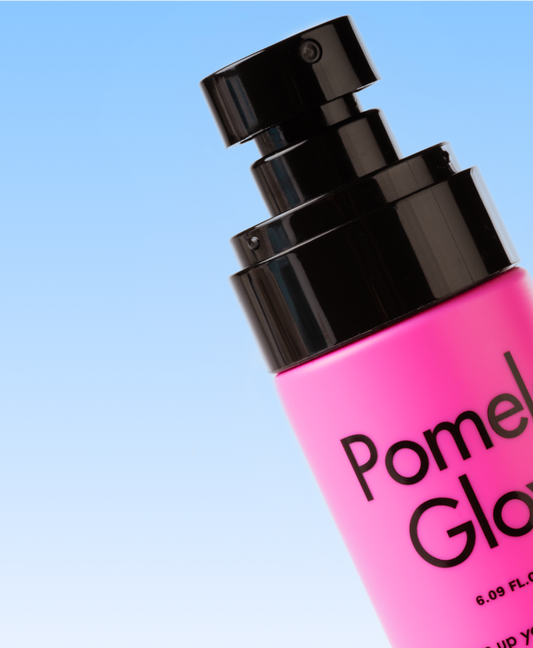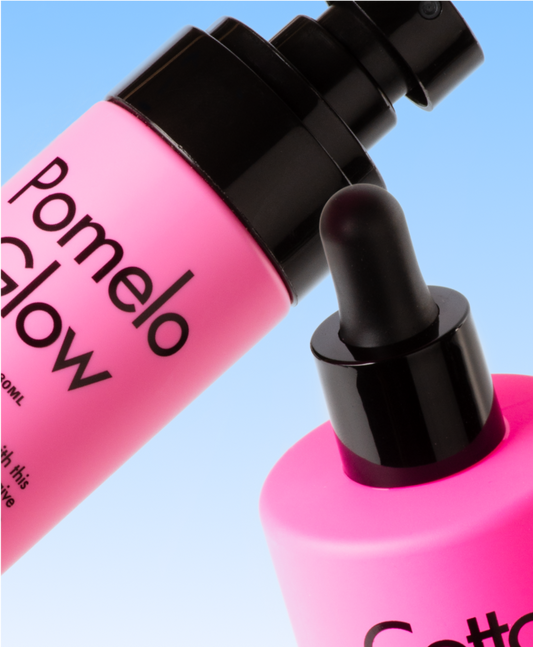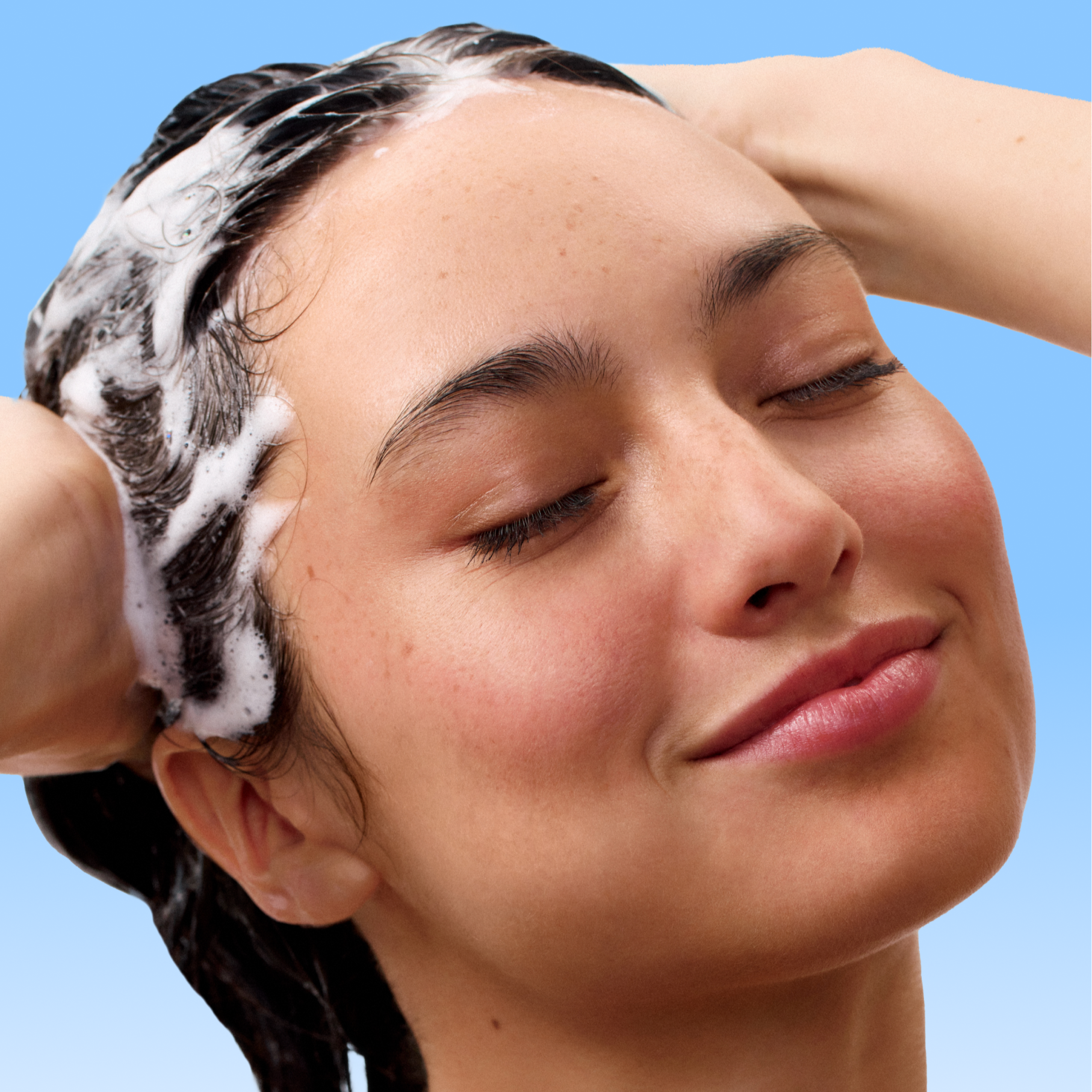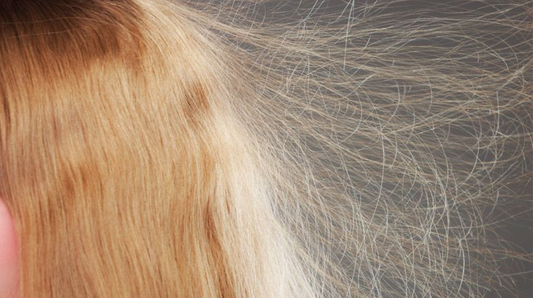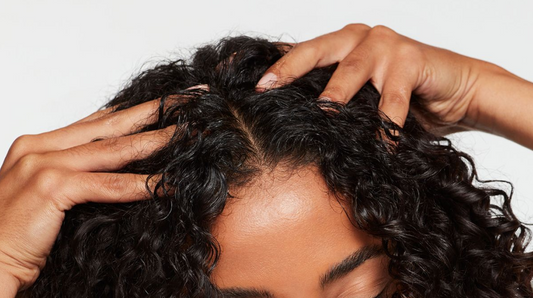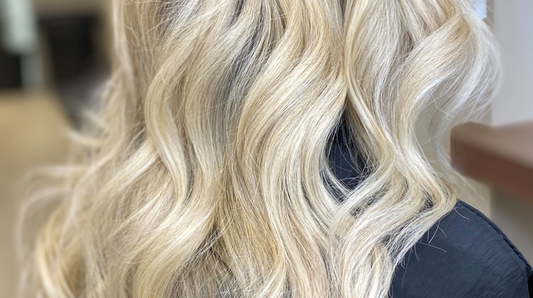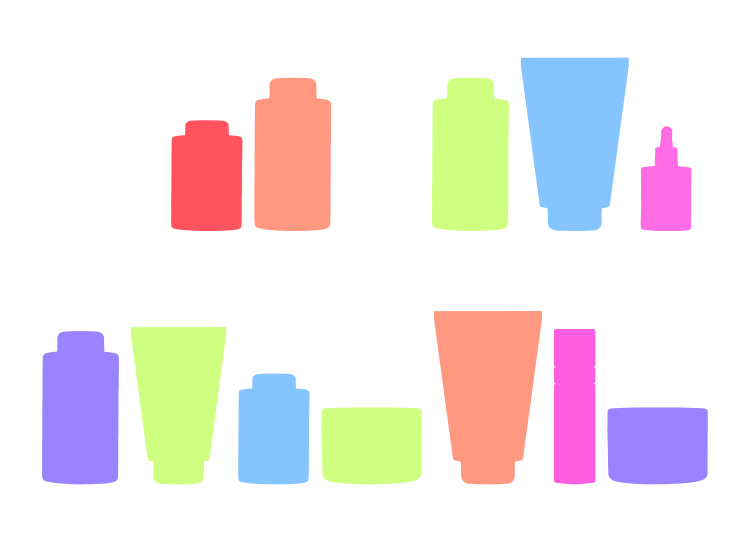We know, having oily hair can be very frustrating and difficult to control. But don't worry, if you suffer from oily hair you've come to the right blog.
If you're wondering why you have oily hair and how to take care of oily hair on a daily basis, here you'll find causes, routines and care for oily hair with practical recommendations.
What's happening to my hair and why is my hair oily?
Each of our hair follicles has a sebaceous gland at its root that secretes sebum on a continuous basis to keep the hair in optimal condition and protect it. When this balance is disturbed, the greasy scalp accumulates sebum at the root and hair shaft, resulting in the caked and shiny appearance typical of greasy hair.
When these glands secrete more sebum than necessary, the scalp and hair become greasy, resulting in "greasy hair". These hairs stand out for having little volume and easily accumulate dirt. Excess sebum (hyperseborrhea) is the direct factor in oily hair; identifying the causes of oily hair (hormones, habits, products, climate) will help you adjust your oily hair care.
The main causes of oily hair
Hormonal
The most common cause that causes seborrheic glands to produce more sebum than usual is hormonal. Pregnancy, childbirth, puberty and menopause cause a change in hormones that can influence the production of sebum on the scalp; one of the causes of oily hair can also be hormonal fluctuations (stress, menstrual cycle) that elevate sebum production, which is why many searches focus on oily hair causes and very oily hair causes.
A diet rich in fats and simple sugars can aggravate greasy hair; prioritize lean proteins, vegetables and sources of zinc and B vitamins.
Weather changes
Weather changes, or even temperature rises and falls, can provoke a bodily reaction that increases sebum production in order to protect our scalp. It usually happens in winter, when we move from the cold outside to a warm indoor environment. So you notice greasy hair can be caused by a change in heat and humidity (sports, summer, gyms) also mixing sweat and sebum, enhancing the oily appearance. Adjust your oily hair care routine according to the season.
Excessive use of oil-based products
It is very important not to overuse oil-based products, and if we use them, always keep a certain distance from the root to avoid causing an oily effect that gives the sensation of greasy hair. Avoid waxes, heavy gums and silicones that are not soluble in the roots: they can create build-up and worsen the causes of greasy hair.
Playing with our big hair
We all love to touch our hair after washing it, it's soft and gives us a nice feeling. But the reality is that touching or even rubbing the scalp can actually stimulate it to produce more sebum, making it look oilier and greasier. Habits such as wearing hats or helmets too long, or excessive brushing from the roots, spread the sebum and accelerate the "dirtying" of the hair.
What to do if I have greasy hair?
Here are a few tips to try to control greasy hair.
1. Use a shampoo that suits the needs of your greasy hair
When looking for a shampoo, if your hair tends to produce a lot of oil, it's best to avoid very nourishing shampoos.
Melrose Shampoo will be a must-have in your routine. It offers gentle cleansing while purifying the scalp and regulating excess oil.
Don't brush your hair from the roots and avoid touching your hair.
Every day we brush our hair, and if we do it from the root we are spreading the oil that can be located in that area to the rest of the hair. A very common habit is to constantly run your hand through your hair. However, touching the hair transfers the grease from the hands to the scalp and roots, accelerating the dirty look. Also, when brushing, always brush from mid-lengths to ends, avoiding dragging sebum from the roots to the rest of the hair.
3. Get into the habit of washing your combs regularly.
Combs accumulate dirt and sebum, that's why if we don't wash them and brush with them, we will grease and dirty the hair.
4. Do not avoid masks.
Many times, when we have oily hair, we choose to avoid masks because we think they will make our hair dirty. This is a mistake. We need to moisturize or nourish our hair, but we need to do it with masks that add little weight.
Our masks, L'Essentiel Mask and Tasmania Mask, provide nourishment and hydration without weighing hair down.
Now that you know how to control greasy hair you have no excuse to start changing your habits and show off your great hair.
5. Use dry shampoo between washes
Dry shampoo can be a great ally for those with oily hair as it absorbs excess sebum and provides instant freshness. Use it by spraying it at a distance of 20-25 cm, leave it on for a few seconds and brush gently. It is ideal for spacing out washes, but does not replace regular shampooing.
At GOA we have Cloud Dust, a dry shampoo in powder format loaded with natural ingredients. This dry shampoo absorbs sebum and eliminates unpleasant odors, leaving your hair clean, fresh and with incredible volume. Plus, it's vegan, scalp-friendly, compatible with all hair types and our treatments. Perfect for those days when you want to wear your hair loose and full of body without having to wash it.
Cloud Dust becomes your best ally in the care for oily hair, helping you to space washes and keep your mane impeccable.
6. Check your diet, control stress and clean your tools.
Hair health is closely linked to our daily habits. A diet rich in sugars or saturated fats can increase sebum production, while stress also stimulates the scalp. Opt for a balanced diet and relaxation techniques. And don't forget to clean your combs and brushes weekly: there is no point in washing your hair if you then use tools full of residues and accumulated grease.
